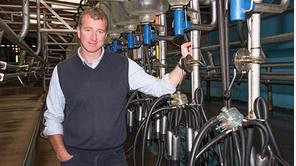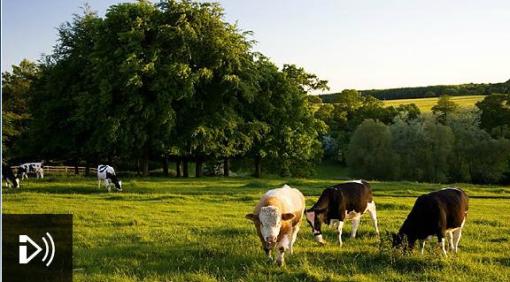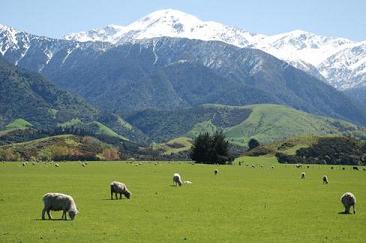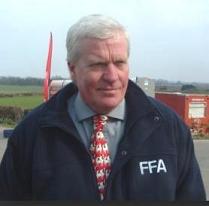All food producers should be paid above production costs
 In last week’s Now Show, in a list of sensible reforms proposed, Marcus Brigstocke said that dairy farmers could be paid 1p above production costs instead of 1p below the cost of milk production.
In last week’s Now Show, in a list of sensible reforms proposed, Marcus Brigstocke said that dairy farmers could be paid 1p above production costs instead of 1p below the cost of milk production.
Prices fall when farmers oversupply the market – details in the Scottish Farmer.
 Robert Craig, who farms an all-grass dairy unit in north-east Cumbria writes in the Farmers Weekly: “Just as we start to get used to a good milk price, the long-awaited optimism our dairy industry needed seems to have come to a shuddering halt (if it hasn’t yet, it’s about to). For the first time in 20 years, dairy cow numbers are rising across the EU. There’s nothing like a good milk price to help strengthen supply. In 12 months’ time quotas will be history and a new era of dairy farming will be dawning on us and I think the next few years are going to be as challenging as we’ve seen for some time”.
Robert Craig, who farms an all-grass dairy unit in north-east Cumbria writes in the Farmers Weekly: “Just as we start to get used to a good milk price, the long-awaited optimism our dairy industry needed seems to have come to a shuddering halt (if it hasn’t yet, it’s about to). For the first time in 20 years, dairy cow numbers are rising across the EU. There’s nothing like a good milk price to help strengthen supply. In 12 months’ time quotas will be history and a new era of dairy farming will be dawning on us and I think the next few years are going to be as challenging as we’ve seen for some time”.
 The Shropshire Star quotes the words of David Handley (Farmers For Action): “Dairy farmers know we have got to control supply management, we have been here before and when we have been down this road we know this is the only outcome”.
The Shropshire Star quotes the words of David Handley (Farmers For Action): “Dairy farmers know we have got to control supply management, we have been here before and when we have been down this road we know this is the only outcome”.
He added that many farmers have gone ahead and produced milk – highly perishable – without considering the fact that the UK has not got the processing capacity to turn it into products.
It’s the market, stupid
Martin Armstrong, head of Muller’s group milk supply, said: “Whilst any correction in the farm-gate price is disappointing, the market is simply responding to higher levels of supply and a weakness in demand for dairy commodities.
And Farming Today’s account?
In the late ‘90s, Radio 4’s Farming Today which ‘faced the chop’ because of its frank and truthful coverage of BSE and FMD issues is now proud that its ‘the rural agenda’ – and that of Countryfile – has made countryside “relevant to people’s lives as both a playground and a source of affordable and safe food” – in that order of priority?
On Tuesday, opening and closing with the ‘playground’, its order of attention was:
- Newts,
- Pests in cereal,
- Pirbright safety standards Prosecution,
- Milk Prices
- Dawn chorus
The milk prices issue was given 3 minutes and then the programme moved thankfully on to the dawn chorus.
–





Recent Comments